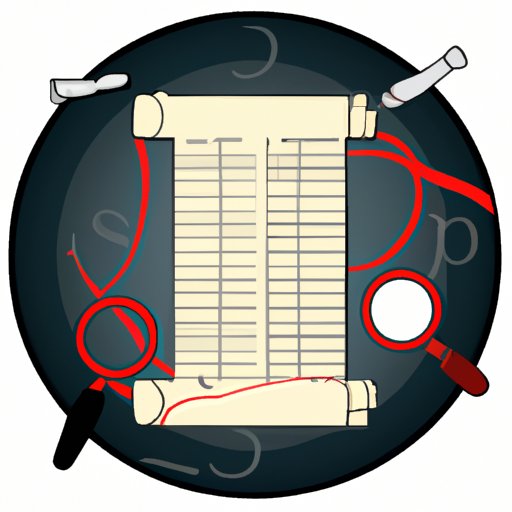Introduction
Reflection is the process of taking time to pause and think about an experience or situation. It can involve looking back on something in order to gain insight into our thoughts, feelings, and reactions. Reflection paragraphs are a way to capture our reflections in written form, which can help us to further process what we have experienced and learned.
How to Start a Reflection Paragraph
When beginning a reflection paragraph, it is important to introduce the topic you will be reflecting on. This could be a specific event, a lesson, or any other experience that you want to reflect on. After introducing the topic, you can describe a personal experience related to the topic. Describing this experience should include details such as how you felt, what you thought, and what you did in response.
Next, you can ask yourself questions about the experience and your reactions to it. These questions can help you to explore the experience further and gain deeper insights. Examples of questions to ask yourself include “What surprised me?”, “What did I learn from this experience?”, and “What was challenging about this experience?”.
It is also important to summarize key points of the experience. This can include summarizing the main event, people involved, and any lessons or insights gained. After summarizing the experience, you can then analyze it and draw conclusions about what happened and why. This analysis can include looking at underlying causes and consequences of the experience, as well as identifying any patterns or trends.
Finally, you can make a plan for how to apply what you’ve learned to future situations. This plan should include specific steps you can take to apply the knowledge and insights gained from the experience. For example, if you learned a lesson about communication, your plan might include communicating more clearly with others in the future.
Conclusion
Writing a reflection paragraph can be a helpful way to process and learn from experiences. When starting a reflection paragraph, it is important to introduce the topic, describe a personal experience, ask questions, summarize key points, analyze the experience, and make a plan for how to apply what you’ve learned. With these tips in mind, you can begin capturing your reflections in written form.
Reflection is a valuable tool for growth and development. As you continue to practice reflection, you will gain greater insight into yourself and your experiences.
(Note: Is this article not meeting your expectations? Do you have knowledge or insights to share? Unlock new opportunities and expand your reach by joining our authors team. Click Registration to join us and share your expertise with our readers.)
